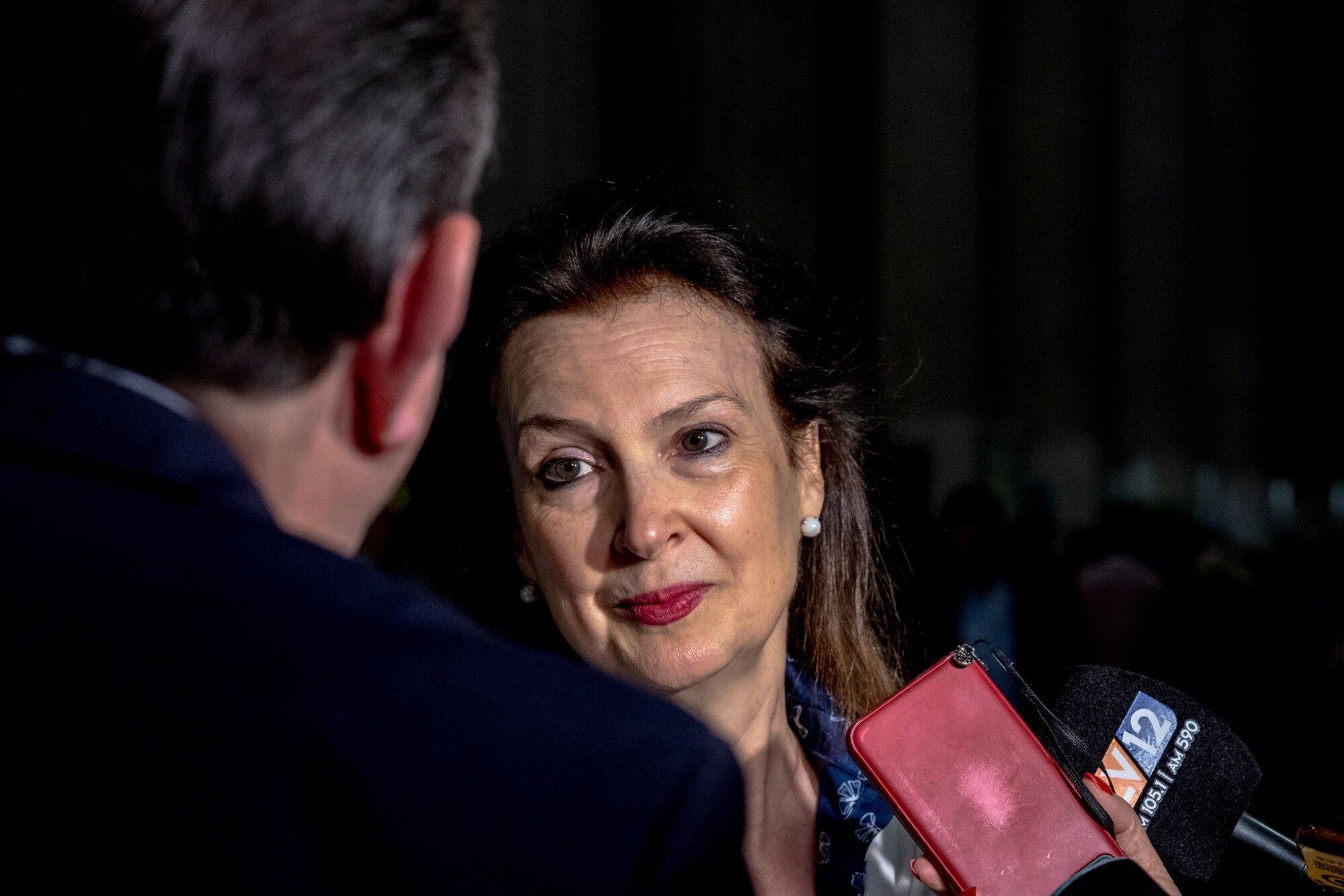The US needs to update its political, diplomatic and economic toolkit if it wants to keep pace with China in vying for influence in Latin America, several Biden administration officials and representatives from the region said.
The conclusion echoed that of a 36-page report on the subject by the Atlantic Council, a Washington-based think tank that convened an event to discuss the findings on Monday.
Drawing on discussions with regional business leaders, government officials and policymakers, the report argued the US should focus on economics, investment, trade, energy security and migration as well as strengthening democratic institutions.
Do you have questions about the biggest topics and trends from around the world? Get the answers with SCMP Knowledge, our new platform of curated content with explainers, FAQs, analyses and infographics brought to you by our award-winning team.
This was necessary to “counter malign forms of Chinese and Russian influence in Latin America and the Caribbean”, according to the report.
“The security and prosperity of Latin America and the Caribbean have a direct impact on the US,” said Juan Gonzalez, who works on Western hemisphere affairs at the National Security Council.
But Gonzalez, who also serves as a special assistant to US President Joe Biden, believed some domestic legal requirements prevented a more dynamic engagement with Latin American partners.
When the US seeks to liaise on defence with countries like Argentina, for instance, it requires advance payment for the sale of military equipment – something foreign governments can find burdensome due to financial constraints and local regulations.
In contrast, China “offers low prices, extended financing and lots of support”, he said, observing that countries make choices heeding “their interests and finding assets that they can afford to help build up their arsenal”.
China ahead of US in global diplomatic presence – but does it mean influence?
This was one of the main reasons Beijing in recent years had been so successful vis-à-vis Washington in the region, Gonzalez added.
The Chinese embassy in Washington could not immediately be reached for comment.
Another challenge was that the Inter-American Development Bank – a Washington-based institution that for decades served as a primary source of development financing in Latin America – had lagged in luring investment from private companies in the US.
This partly stemmed from an Obama administration decision in 2015 not to increase the US’s stake in the IDB while Canada, China, South Korea and Spain did, Gonzalez recalled.

Mark Wells, a deputy assistant secretary of state for Western hemisphere affairs, said “a lot of [Biden administration initiatives in the region] deserve a couple more zeros at the end when it comes to funding”.
But he argued the US had tried to “prove the concept that we are ready for a new era in Latin American relations”.
As proof, Wells cited the Americas Partnership for Economic Prosperity, an initiative Biden unveiled at a summit in 2022 with countries in the region such as Chile, Colombia, Costa Rica, Mexico and Uruguay.
“This is a way to expand our cooperation and financing for high-quality critical infrastructure and other strategic economic sectors,” he said.
US development official contrasts ‘big-hearted’ aid with China ‘debt traps’
Despite the ideas, Latin American officials at the event on Monday called for greater political willingness in Washington to bolster relations.
Argentine Foreign Minister Diana Mondino said her country preferred to work with liberal democracies, noting Buenos Aires’s refusal to join Brics, an association of major emerging national economies led by Brazil, Russia, India, China and South Africa.
Mondino also pointed to Argentina’s application for membership in the Organisation for Economic Cooperation and Development, a US and European-backed institution often referred to as a “rich man’s club”.
Javier Milei, Argentina’s new president, had called for heightened US engagement on issues such as free-trade agreements, she said.
China’s Latin American investments downshift to smaller, more strategic projects
“And this is actually not something the US should do to counter Chinese or Russian influence” in the region, Mondino added.
“That’s not the point. The US has to get back to doing the right thing ... promoting trade, upholding the rule of law and becoming a customary partner.”
Maria Eugenia Brizuela de Avila, a former foreign minister of El Salvador, suggested Washington capitalise on “shared values and interests” with countries in the region, investing in sectors important to both sides, like renewable energy, key minerals, education and poverty alleviation.
“As we understand our differences, this is also crucial for effective diplomacy and global cooperation,” she said.
More from South China Morning Post:
- China slams US ‘smear tactics’ in WTO assessment, says Washington covering up its ‘sabotage’
- China benefits from global stability even as it tries to undercut it, US official says
- US secretary of state to meet with Brazilian and Argentine presidents next week
- China cuts tariffs on 143 Argentine agricultural and industrial products amid tense bilateral ties
For the latest news from the South China Morning Post download our mobile app. Copyright 2024.





